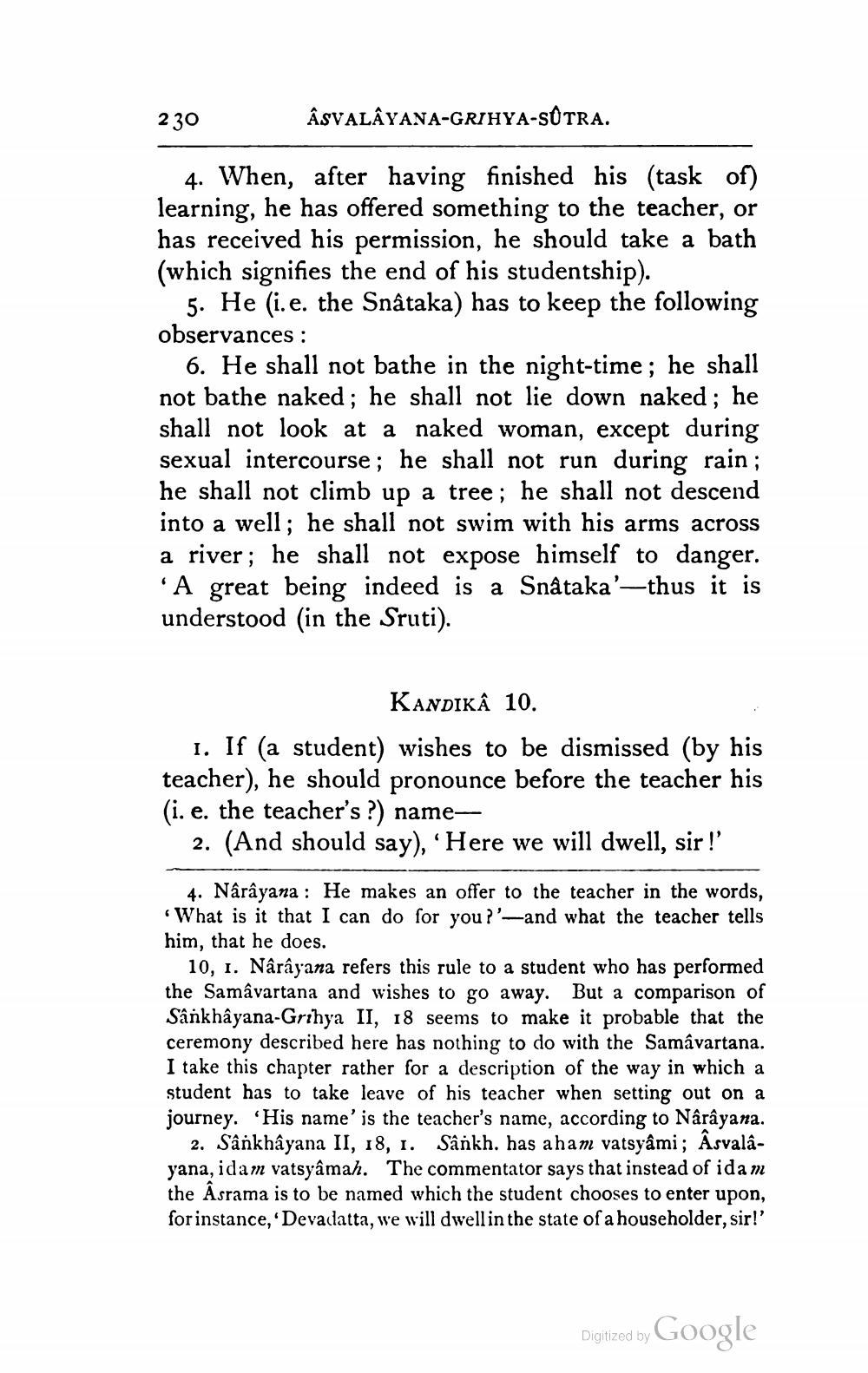________________
230
ÂSVALAYANA-GRIHYA-SUTRA.
4. When, after having finished his (task of) learning, he has offered something to the teacher, or has received his permission, he should take a bath (which signifies the end of his studentship).
5. He (i.e. the Snâtaka) has to keep the following observances :
6. He shall not bathe in the night-time; he shall not bathe naked; he shall not lie down naked; he shall not look at a naked woman, except during sexual intercourse; he shall not run during rain; he shall not climb up a tree; he shall not descend into a well; he shall not swim with his arms across a river; he shall not expose himself to danger. 'A great being indeed is a Snâtaka'-thus it is understood (in the Sruti).
KANDIKA 10.
1. If (a student) wishes to be dismissed (by his teacher), he should pronounce before the teacher his (i. e. the teacher's?) name
2. (And should say), 'Here we will dwell, sir!'
4. Nârâyana: He makes an offer to the teacher in the words, 'What is it that I can do for you?'-and what the teacher tells him, that he does.
10, 1. Nârâyana refers this rule to a student who has performed the Samâvartana and wishes to go away. But a comparison of Sankhâyana-Grihya II, 18 seems to make it probable that the ceremony described here has nothing to do with the Samâvartana. I take this chapter rather for a description of the way in which a student has to take leave of his teacher when setting out on a journey. His name' is the teacher's name, according to Nârâyana. 2. Sânkhâyana II, 18, 1. Sankh. has aham vatsyâmi; Asvalâyana, idam vatsyâmah. The commentator says that instead of idam the Asrama is to be named which the student chooses to enter upon, for instance, 'Devadatta, we will dwell in the state of a householder, sir!'
Digitized by Google




